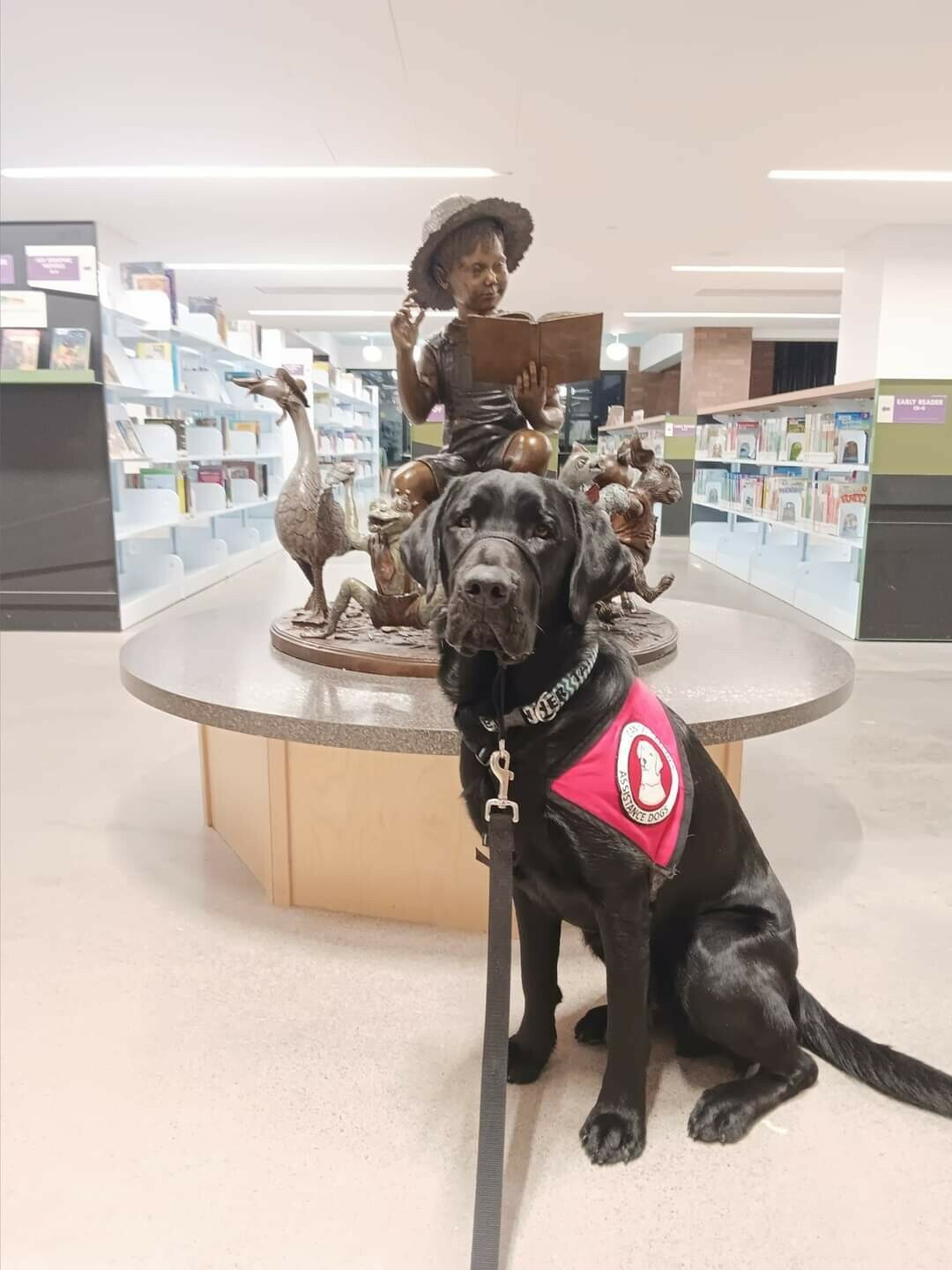ON THE JOB: Local Volunteer Trained 100 Service Dogs
volunteer hits milestone, has trained service dogs in Eau Claire for six years

It can be impressive to witness a service dog in action. Wearing an informative vest, these dogs are specifically trained to assist people in their day-to-day lives.
Erin Whitfield, a volunteer from Eau Claire, just reached the milestone of helping train 100 service dogs after six years of volunteering. Welcoming her first dog in January 2018, Whitfield has worked with Can Do Canines, a nonprofit based out of New Hope, Minnesota, as the final step in the service dogs’ training.
Whitfield practices with the dogs so they know their responsibilities, teaching them how to act when they are “on the job.” She takes them around Eau Claire to expose them to new sounds and smells so they’re comfortable going anywhere. The dogs are trained to help with five disabilities: hearing, mobility, seizures, autism, and diabetes.

A highlight for Whitfield is attending the graduation ceremony for the dogs she helped train. She is invited to Minnesota to see the dogs receive their certification and their new assignment.
“I actually got to witness a different dog … sitting a couple rows in front of me and he was an autism assist dog,” Whitfield said. “The child that was with him started to get kind of agitated and on cue he just immediately went to the kid and started licking him and comforting him and the kid settled down.”
The training process for the service dogs-to-be starts at birth with basic obedience and potty training. They are purposefully poked and petted all over to condition them for human contact and are put in different outfits to prepare for wearing their service vests.

However, these dogs have a lot more to learn before certification. According to the group’s website, Can Do Canines works with seven prisons in Minnesota and Wisconsin where inmates help provide the dogs with six to nine months of intensive training.
At the prisons, the dogs receive constant attention and training, learning strict routines and consistent corrections. According to Can Do Canines, the dogs also help the inmates work on patience, empathy, and confidence as they have a companion to rely on.
From there, the dogs go to homes like Whitfield’s until they are two or three years old and are ready to be certified. Whitfield has fostered dogs for as little as a few days to as long as two years. “My personal preference is a month or two,” she said. “It’s long enough to get to really know the dog well, yet still get to meet plenty of other dogs.”
During the foster period, the dogs focus on practicing day-to-day tasks and adapting to typical environments. They are on the job, going to coffee shops, parks, businesses, and even workplaces to practice diligence and professionalism when on duty.
“Each dog is so different, it’s really neat to know that you get to meet so many dogs and you get to be a part of that journey for so many dogs that help so many people,” Whitfield said.
To apply for a dog, volunteer, or donate to Can Do Canines you can visit their website. You can also see the organization in person at their Fetching Ball Gala on Feb. 17 at the Radisson Blu Mall of America as they host a dinner, games, silent auction, and live auction to raise money for the foundation.


















